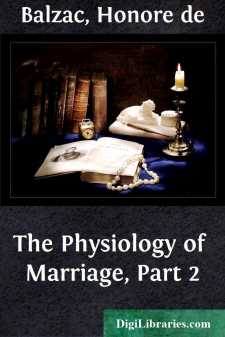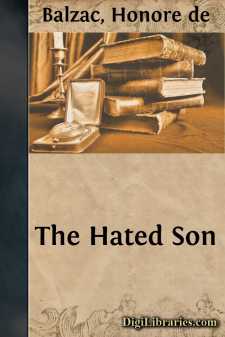Categories
- Antiques & Collectibles 13
- Architecture 36
- Art 48
- Bibles 22
- Biography & Autobiography 813
- Body, Mind & Spirit 142
- Business & Economics 28
- Children's Books 15
- Children's Fiction 12
- Computers 4
- Cooking 94
- Crafts & Hobbies 4
- Drama 346
- Education 46
- Family & Relationships 57
- Fiction 11828
- Games 19
- Gardening 17
- Health & Fitness 34
- History 1377
- House & Home 1
- Humor 147
- Juvenile Fiction 1873
- Juvenile Nonfiction 202
- Language Arts & Disciplines 88
- Law 16
- Literary Collections 686
- Literary Criticism 179
- Mathematics 13
- Medical 41
- Music 40
- Nature 179
- Non-Classifiable 1768
- Performing Arts 7
- Periodicals 1453
- Philosophy 64
- Photography 2
- Poetry 896
- Political Science 203
- Psychology 42
- Reference 154
- Religion 513
- Science 126
- Self-Help 84
- Social Science 81
- Sports & Recreation 34
- Study Aids 3
- Technology & Engineering 59
- Transportation 23
- Travel 463
- True Crime 29
Parisians in the Country
by: Honore de Balzac
Categories:
Description:
Excerpt
INTRODUCTION
I have sometimes wondered whether it was accident or intention which made Balzac so frequently combine early and late work in the same volume. The question is certainly insoluble, and perhaps not worth solving, but it presents itself once more in the present instance. L'Illustre Gaudissart is a story of 1832, the very heyday of Balzac's creative period, when even his pen could hardly keep up with the abundance of his fancy and the gathered stores of his minute observation. La Muse du Departement dates ten years and more later, when, though there was plenty of both left, both sacks had been deeply dipped into.
L'Illustre Gaudissart is, of course, slight, not merely in bulk, but in conception. Balzac's Tourangeau patriotism may have amused itself by the idea of the villagers "rolling" the great Gaudissart; but the ending of the tale can hardly be thought to be quite so good as the beginning. Still, that beginning is altogether excellent. The sketch of the commis-voyageur generally smacks of that physiologie style of which Balzac was so fond; but it is good, and Gaudissart himself, as well as the whole scene with his epouse libre, is delightful. The Illustrious One was evidently a favorite character with his creator. He nowhere plays a very great part; but it is everywhere a rather favorable and, except in this little mishap with Margaritis (which, it must be observed, does not turn entirely to his discomfiture), a rather successful part. We have him in Cesar Birotteau superintending the early efforts of Popinot to launch the Huile Cephalique. He was present at the great ball. He served as intermediary to M. de Bauvan in the merciful scheme of buying at fancy prices the handiwork of the Count's faithful spouse, and so providing her with a livelihood; and later as a theatrical manager, a little spoilt by his profession, we find him in Le Cousin Pons. But he is always what the French called "a good devil," and here he is a very good devil indeed.
Although La Muse du Departement is an important work, it cannot be spoken of in quite unhesitating terms. It contains, indeed, in the personage of Lousteau, one of the very most elaborate of Balzac's portraits of a particular type of men of letters. The original is said to have been Jules Janin, who is somewhat disadvantageously contrasted here and elsewhere with Claude Vignon, said on the same rather vague authority to be Gustave Planche. Both Janin and Planche are now too much forgotten, but in both more or less (and in Lousteau very much "more") Balzac cannot be said to have dealt mildly with his bete noire, the critical temperament. Lousteau, indeed, though not precisely a scoundrel, is both a rascal and a cad. Even Balzac seems a little shocked at his lettre de faire part in reference to his mistress' child; and it is seldom possible to discern in any of his proceedings the most remote approximation to the conduct of a gentleman. But then, as we have seen, and shall see, Balzac's standard for the conduct of his actual gentlemen was by no means fantastically exquisite or discouragingly high, and in the case of his Bohemians it was accommodating to the utmost degree....












